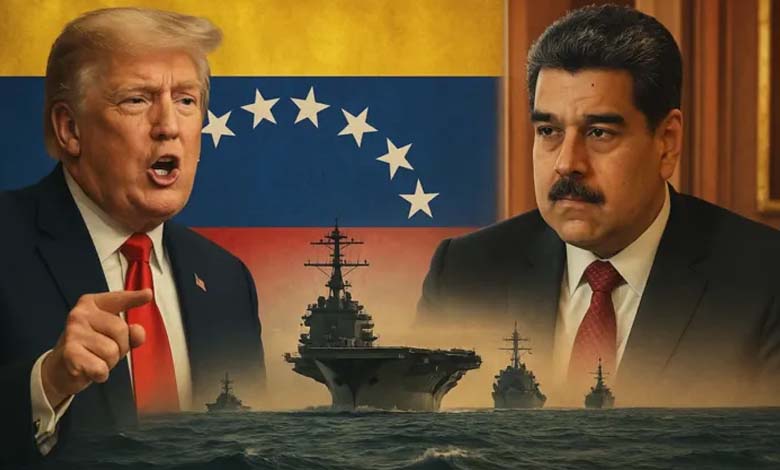Ford in Latin America: a new escalation from Washington against Venezuela

The arrival of the aircraft carrier “Gerald R. Ford” marks the largest U.S. military presence in Latin America since the 1989 invasion of Panama.
The U.S. Navy announced that the “Gerald R. Ford,” the world’s newest and largest aircraft carrier, has entered the area of responsibility of the U.S. Southern Command, which covers Latin America and the Caribbean region.
-
The Venezuelan Air Force: a symbolic power that would not withstand the United States
-
Venezuelan fighter jets fly near a US destroyer: a provocation over the Caribbean
This move comes three weeks after the announcement of the ship’s deployment along with its strike group, which includes dozens of aircraft and destroyers. However, its actual arrival represents a significant escalation in the ongoing military buildup between the United States and Venezuela, according to the British newspaper The Guardian.
The paper also cited statements from Venezuelan President Nicolás Maduro, who spoke of an “intensive deployment” of land, naval, air, river, and missile forces, as well as civilian militias, to counter the U.S. naval presence off Venezuela’s coast.
-
Is War Approaching? Venezuela Deploys Warships and Drones in Response to U.S. Moves
-
Why is Russia Building a New Ammunition Factory in Venezuela?
Former U.S. President Donald Trump sought to justify this large-scale military buildup as part of his “war on drugs,” targeting traffickers operating in Caribbean and Pacific waters. The campaign has reportedly resulted in at least 76 deaths since last September.
In a statement released by the U.S. Navy, Pentagon spokesperson Sean Parnell said, “The arrival of the USS Gerald R. Ford, carrying over 4,000 sailors and dozens of tactical aircraft, will enhance the United States’ ability to detect, monitor, and disrupt illicit actors and activities in the region.”
He added, “These forces will strengthen existing capabilities to disrupt drug trafficking and to weaken and dismantle transnational criminal organizations.”
-
Iranian supertanker departing from Venezuela to transport heavy oil
-
Iran challenges the US sanctions and sent the biggest flotilla to Venezuela with fuel
Many analysts believe that the attacks on vessels and the increased military buildup are intended to pressure Maduro to step down following allegations of electoral fraud in last year’s elections.
Maduro, in response, accused the United States of “provoking a new war,” calling the naval deployment “the greatest threat our continent has faced in a hundred years.”
Shortly before the U.S. Navy confirmed the carrier’s arrival, Caracas announced a new phase of military mobilization against what it described as American “imperialist threats.” State television aired footage of military commanders delivering speeches across several provinces.
-
Anti-smuggling operation or violation of sovereignty? U.S. airstrikes intensify across the Caribbean
-
The Russian Harmony system: A secret ploy to shield nuclear submarines
At the conclusion of the Community of Latin American and Caribbean States (CELAC) summit in Colombia last Sunday, 58 out of 60 member countries signed a joint declaration rejecting “the use or threat of force and any action inconsistent with international law and the United Nations Charter,” without directly referring to the United States.
Venezuela and Nicaragua were the only two countries that did not sign the declaration, although reports suggest that Maduro’s government had expected a stronger condemnation of Washington.
Brazilian President Luiz Inácio Lula da Silva, who is negotiating with Trump on an agreement to cut tariffs on Brazilian imports by more than 50%, also avoided any direct mention of the United States.












